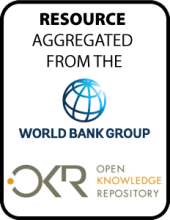Land Library
Welcome to the Land Portal Library. Explore our vast collection of open-access resources (over 74,000) including reports, journal articles, research papers, peer-reviewed publications, legal documents, videos and much more.
/ library resources
Showing items 1 through 9 of 432.This paper examines the intersections between youth access to land, migration decisions and employment opportunities using nationally representative and multi-year data from multiple African countries.
A narrative on rural youth in Africa has continued to evolve in policy circles around the world. Much of it is driven by population statistics that point to an imminent youth bulge in Africa and concerns about a poor economic outlook (stagnation) for African productivity and growth.
Countries of the Near East, North Africa, Europe and Central Asia (NEN) region face a myriad of social, economic and political challenges that have stalled their structural and rural transformation processes.
This article offers a general picture of the situation of rural youth in Latin America and the Caribbean(LAC).
Thispaper characterizes the structural and rural transformation of the Asia and the Pacific region(APR), highlighting the implications for rural youth opportunities and challenges, and identifying andelaborating on the characteristics, opportunities and challenges related to rural youth inclusion
The agricultural and food production sector plays a key role in fighting poverty and food insecurity in Moldova, but is facing critical challenges to modernize and integrate into the international market.
Uganda’s progress in reducing poverty from 1993 to 2006 is a remarkable story of success that has been well told. The narrative of Uganda’s continued, albeit it slightly slower, progress in reducing poverty since 2006 is less familiar.
Weather risk and incomplete insurance
markets are significant contributors to poverty for rural
households in developing countries. Weather index insurance
has emerged as a possible tool for overcoming these
Over the last 20 years, poor rural
farmers in Nigeria have seen the benefits of community
organization as a tool for local economic development under
the National Fadama Development Project series. They have




